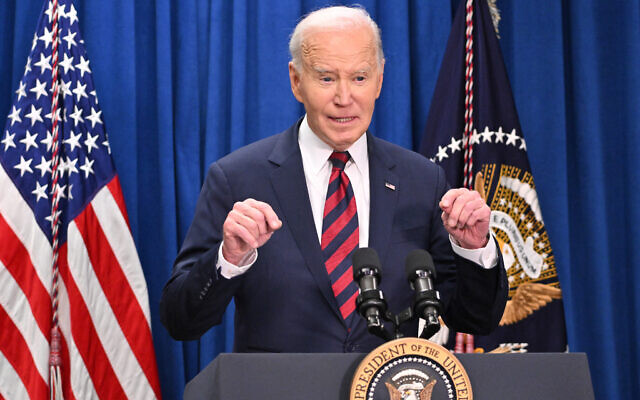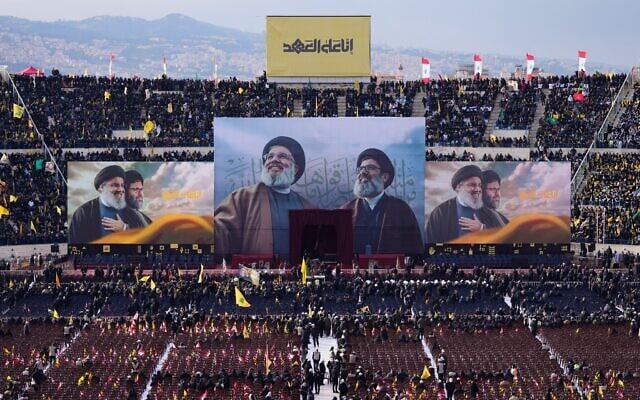


Two years into its longest war, Israel can point to a long list of achievements that have dramatically improved its security after the unconscionable lapses, with their devastating consequences, before and on the morning of October 7, 2023.
Iran’s armed proxy network, once dug in on Israel’s borders with increasingly sophisticated weapons, has largely become a deterred, neutered axis.
Hezbollah, until last year the world’s most powerful terrorist army, saw its leadership repeatedly decapitated by Israeli airstrikes once Jerusalem finally decided to invade southern Lebanon in late 2024. Its forces in disarray and unable to contest IDF ground maneuvers across its entire front with Israel, Hezbollah agreed to humiliating ceasefire terms that amount to a clear defeat.
Without Hezbollah troops available to prop him up, and with Israeli jets blocking Iran from sending reinforcements, Syria’s Bashar al-Assad fell last December. Tehran’s land bridge to Israel’s borders dissipated overnight.
Iran itself was caught up in its own worst nightmare seven months later. An Israeli surprise attack badly damaged key nuclear sites and took out its military leadership. On day one of Israel’s June operation, Iran lost the chief of staff of its armed forces and the commanders of the Islamic Revolutionary Guard Corps, the military’s central headquarters, the IRGC Aerospace Force and the IRGC air defenses. More would fall in subsequent days.
To make matters worse for the regime, US President Donald Trump ordered his own B-2 bombers in, turning the operation into a joint US-Israeli campaign that Tehran was powerless to stop.

Though Israeli agents were operating in large numbers right under its nose, and Israeli and US planes were crisscrossing its skies, Iran managed to kill exactly zero active duty enemy soldiers or intelligence officials (though it executed 5 people it says were Mossad agents).
Hamas, of course, is nothing close to what it was when it poured into Israeli bases and border communities, massacring 1,200 people and abducting 251, on October 7, 2023. It is still doggedly hanging on in Gaza, but it is in no position to seriously threaten Israel and finds itself with less and less room for maneuver every week that goes by.

Prime Minister Benjamin Netanyahu and then-US president Joe Biden’s administration became increasingly at odds, as Biden’s direct control over policy waned. In contrast, despite firm pressure and public criticism from the president over the Iran war and hostage negotiations, Netanyahu has maintained a highly productive relationship with Trump, marked by four visits to the White House in just nine months. Netanyahu has repeatedly argued that “Israel has never been as strong as it is now,” and that the alliance with the US is at dizzying heights.
On Tuesday’s anniversary of October 7, he struck a similarly triumphant tone: “Whoever raises a hand against us receives unprecedented crushing blows. Together we have broken the Iranian axis, together we have changed the face of the Middle East, together we will guarantee the eternity of Israel.”
No one would deny that Netanyahu has directed Israel to a series of important successes in the two years since his biggest failure. At the same time, in every theater where Israel has logged key achievements — from Tehran to Lebanon, from Syria to the halls of power in Washington — it finds itself staring at the sobering limits of its power.
In Lebanon, Hezbollah is bruised, but no one believes that the Lebanese Armed Forces are actually going to disarm the far more powerful Shiite militia. The threat is minimized, but will evolve in the coming years.

Israel hammers the Houthis in Yemen periodically in impressive long-range air raids, but there are no indications they’re looking to throw in the towel.
Israel might have gotten the better of Iran, but at every turn, it needed the help of others. In the two Iranian missile and drone attacks in 2024, Western and Arab countries banded together with Israel to intercept most of the incoming projectiles. And in June, it was the American 30,000-pound GBU-57 bunker busters that did the key damage to Iran’s nuclear sites at Fordo, Natanz and Isfahan at the end of the campaign.
Even more emphatically, when Israeli jets sped toward Iran to deliver a punishing blow “in the heart of Tehran” in response to an Iranian violation of the fledgling ceasefire, Trump forced Netanyahu to limit the attack to a symbolic strike against a radar station.

Across the region, a new axis is starting to take shape as Iran’s recedes. The Ahmad al-Sharaa government in Syria has no illusions about taking on Israel, and has been working for a new security agreement with Jerusalem. But it is backed by a powerful Turkey, which seeks to assert itself as Israel’s leading critic on the world stage.
Qatar, an ideological ally of Turkey, is the other pillar of the emerging Sunni Islamist bloc.
And what makes this axis so problematic over the long term is not that it is creating terrorist armies across the region, as Iran did. It is that both Turkey and Qatar enjoy close ties and enthusiastic support from Washington, drastically limiting Israel’s options if it decides to counter their designs.

In Gaza, too, Israel’s pursuit of the prime minister’s “total victory” has run up against countless friction points. Netanyahu paused and altered the military campaign against Hamas in the face of US and international pressure. Even two years after it carried out the worst slaughter of Jews since the Holocaust, Hamas is still functional and fighting, and Israel has fully achieved none of its war aims — 48 hostages are still held in Gaza, Hamas is not destroyed, and the prevention of any future threat from the enclave has not been guaranteed.
Its best chance of achieving them, in fact, may lie via a Trump plan that the president has, at least in some measure, had to impose on the prime minister.
Israel’s founding fathers recognized the limits of the young country’s power.
As David Ben-Gurion crafted Israel’s national security doctrine in the 1950s, he rooted it in the assumption that Israel would never be able to permanently solve its security challenges on the battlefield. It could only hope to repeatedly defeat its Arab foes, buy periods of quiet, and eventually convince them to make peace deals with the Jewish state.

No Israeli military victory alone has proven to be the magic bullet for recasting the strategic environment. The victory in the 1967 Six-Day War was overwhelming, but the same neighboring foes were firing away at Israel only months later; launched a devastating onslaught on Yom Kippur 1973, and would continue to fight for years.
The same goes for Israel’s campaigns against Palestinian terror groups. Operation Defensive Shield in 2002 went a long way in breaking the Second Intifada and drastically reducing suicide bombings, but Palestinian terrorism persisted and continued to evolve, culminating two years ago in the single deadliest day for Israel and Jews since the Holocaust.

Since beginning its fight back after October 7, however, Israel under Netanyahu seems to believe that it can determine what happens over its hostile borders, and in some instances, well beyond them.
It has created a “manic-depressive” policy, according to military theorist Eran Ortal. This manic Israel, posits Ortal, believes its military might can bomb its way to the reality it wants. This was on full display on September 9, when Israel attacked Hamas leaders in Doha — breaching the sovereignty of the US-allied Qatar, and failing to kill its targets.
Israel’s regional partners have been alarmed by its behavior.
“The post-Oct. 7 military campaigns — spanning Gaza, Lebanon, Syria, Yemen, and culminating in Israel’s historic direct strike on Iran — have led many Gulf officials to conclude that Israel no longer seeks mere deterrence, but rather dominance,” wrote Emirati researcher Mohammed Baharoon and the Middle East Institute’s Alex Vatanka two months ago.
“The Iranian threat has been greatly diminished while Israel presents a new challenge of its own to regional stability, raising fundamental questions about the accords,” they stated.

Alongside the Israel that places too much stock in its ability to influence the region through military operations, there is the Israel that believes the world is against it.
There is no question that antisemitism, progressivism and Islamism are coming together to create a dangerous wave of hostility to Israel across the world, one that pushed even allied leaders to recognize a Palestinian state and support sanctions against the Jewish state.

But Israel is doing itself no favors.
It let soldiers post all sorts of footage online that began to badly undermine its legitimacy soon after October 7. Desperate for friends, Israel finds itself repeatedly alienating its largest base of supporters, Christian Zionists. It opened itself to a predictably effective demonization campaign by halting aid supplies to Gaza between March and May, arguing that there was sufficient food in Gaza before subsequently acknowledging that not all Gazans had access to it.
And Netanyahu refuses to rein in his far-right coalition partners, Itamar Ben Gvir and Bezalel Smotrich, who are doing everything they can to convince the world that Israel’s eminently justified war to free the hostages and topple Hamas is actually a strategic campaign for the expulsion of Gazans and the resettlement of the Strip.
A common trope about Israel is that it is tactically brilliant while strategically inept. That might be overstating the case, but there are certainly limits to how much Israel can influence its surroundings even when at the height of its tactical excellence, as it has been for much of the past two years.
Indeed, to a significant extent, those same limits led to the failures of October 7. Israel wanted Hamas to be weakened and deterred by periodic air campaigns, and bought off by economic incentives, and Jerusalem convinced itself and acted as though that was the case.
Of course, it wasn’t Israel’s decision whether or not Hamas was deterred, as it found out so painfully.

Israel is undoubtedly a regional military and intelligence powerhouse and has carried out effective military operations to significantly reduce the threats it faces. The country is more secure today than it was on October 6, 2023.
At the same time, it cannot create a Middle East free of threats, nor can it achieve security through military means alone. Strategy would be an easy craft if tactical excellence translated easily into national security. Unfortunately, that is not the case.
Seeking a magic fix — the airstrike or raid that proves the tipping point — is an understandable urge, but it is illusory.
Israel has achieved multiple tactical military successes in its fight back over the past two years. But if it is to take advantage of the opportunities it has created, it will need to employ all the tools at its potential disposal — military, diplomatic (including public advocacy), political and economic — make the fullest use of them, and begin with sober strategic planning.

